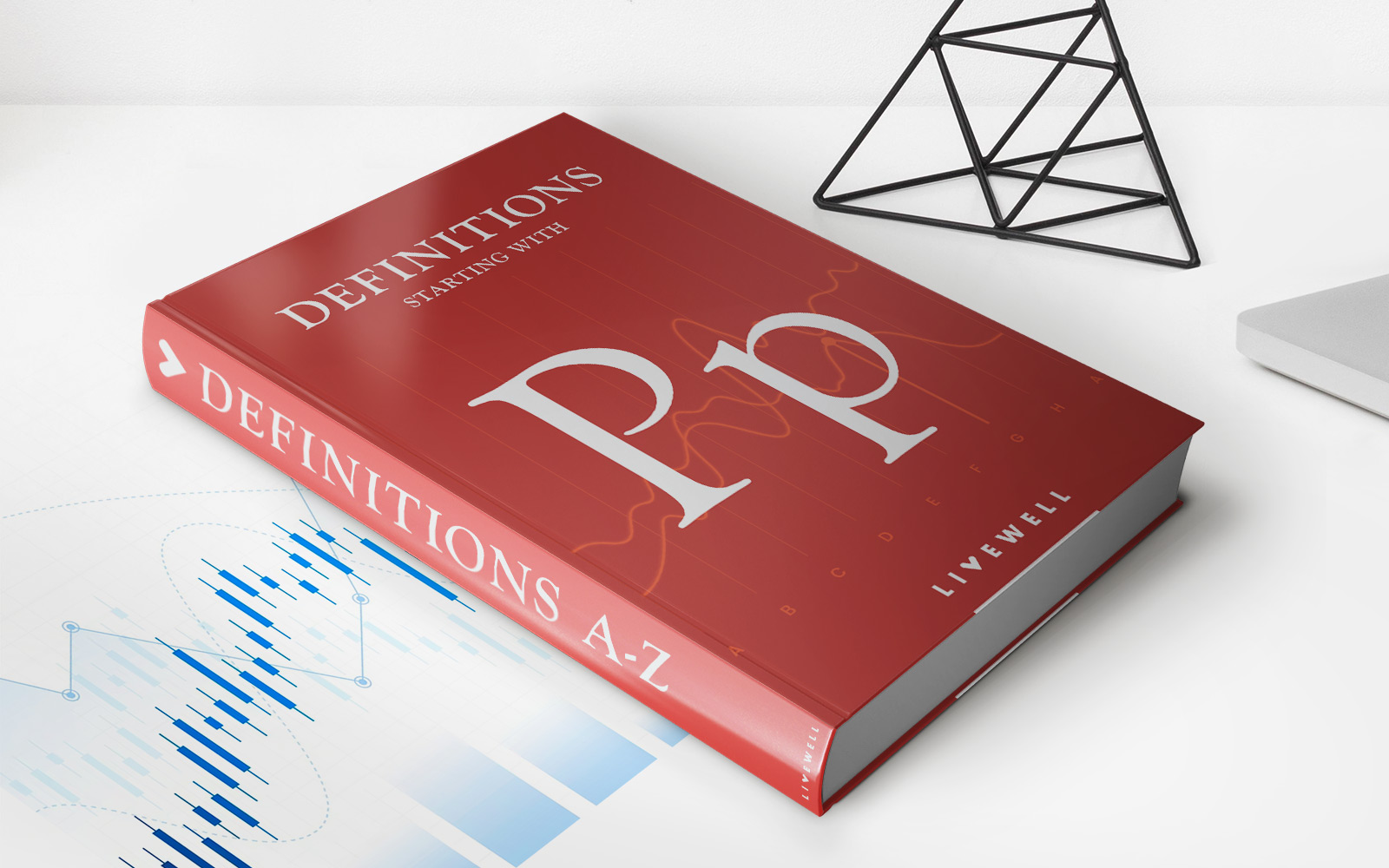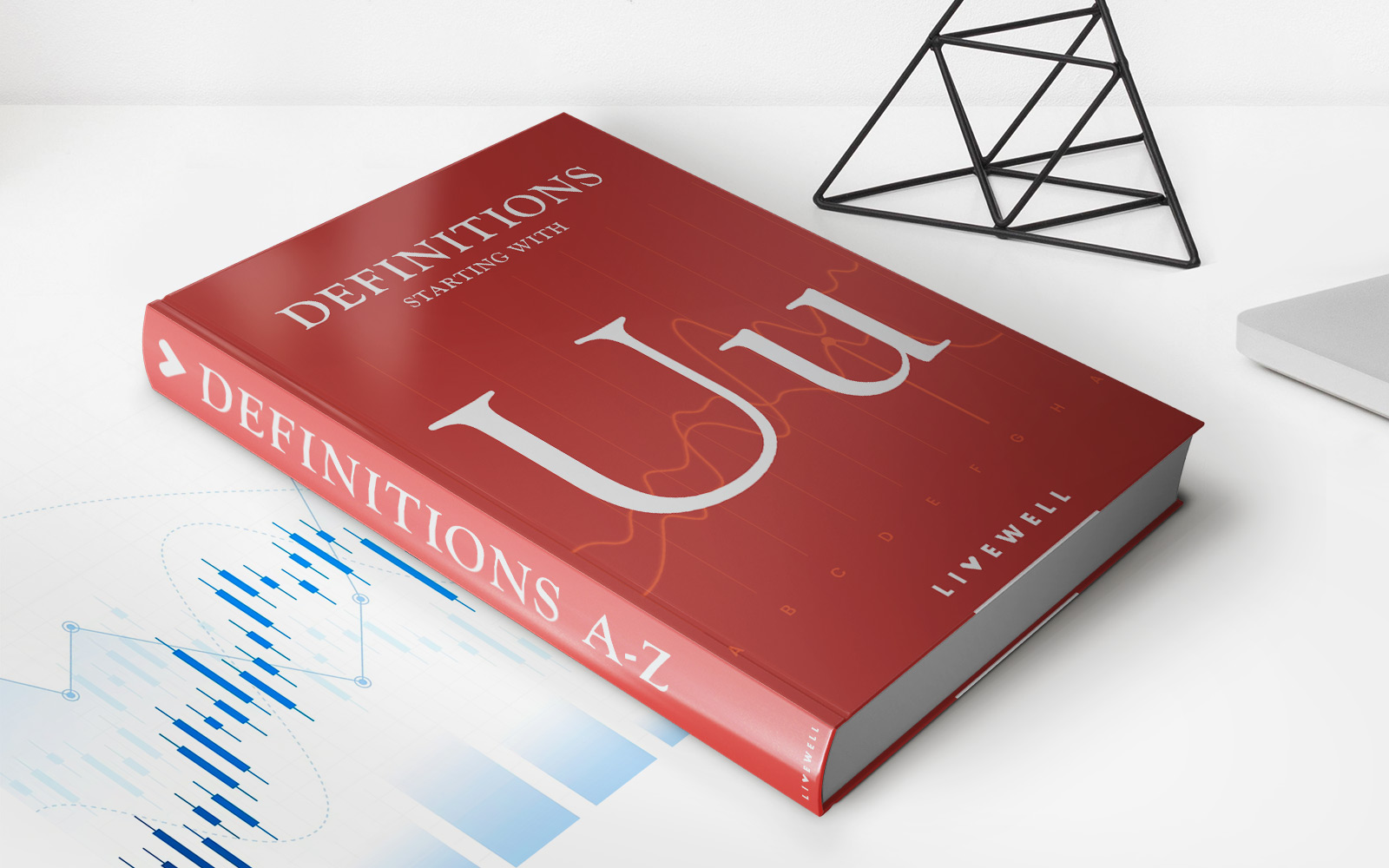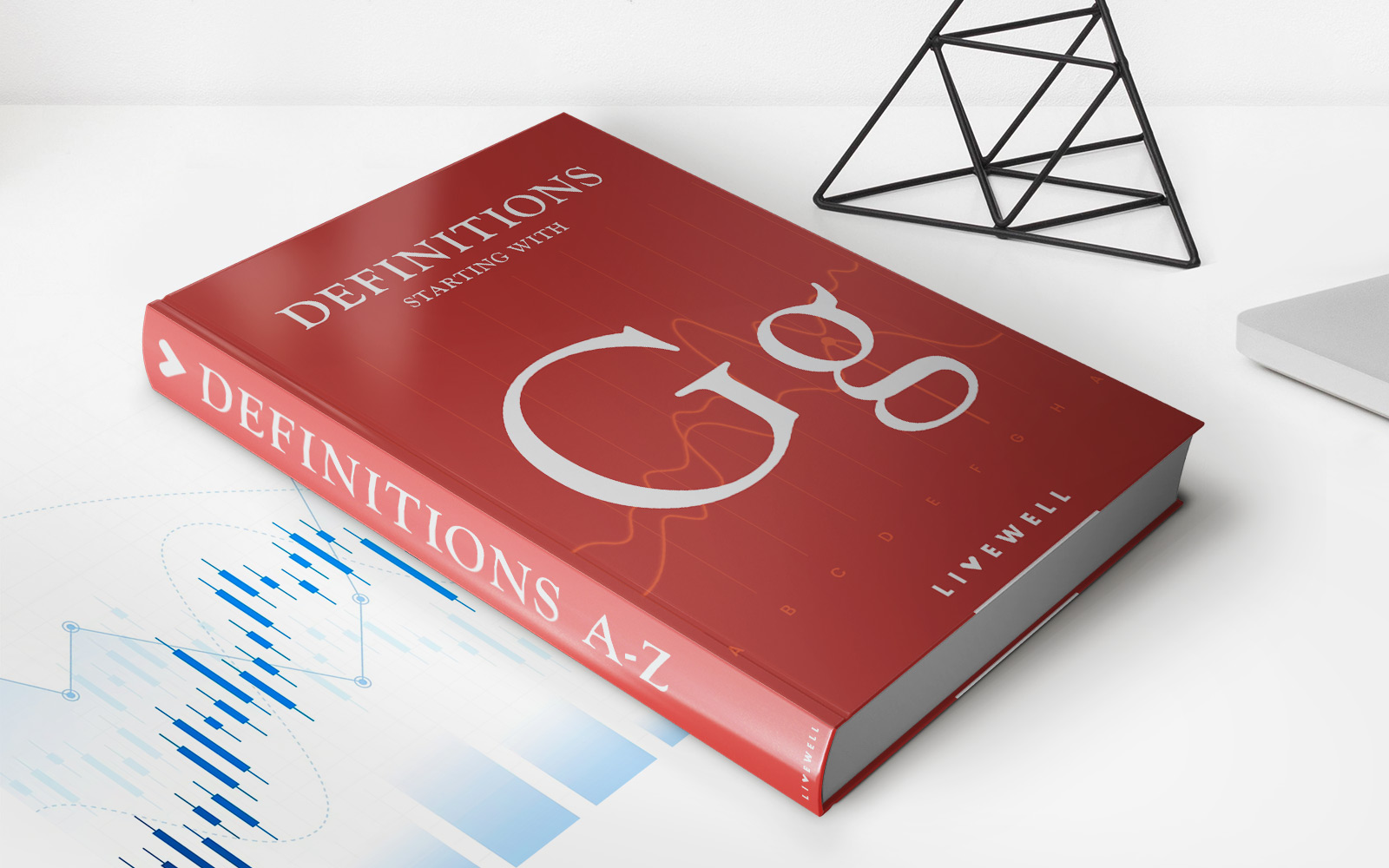

Finance
How Much Is Home Title Insurance?
Modified: February 21, 2024
Looking for home title insurance? Find out how much it costs and protect your finances with comprehensive coverage for your property title.
(Many of the links in this article redirect to a specific reviewed product. Your purchase of these products through affiliate links helps to generate commission for LiveWell, at no extra cost. Learn more)
Table of Contents
- Understanding Home Title Insurance
- Factors that Affect Home Title Insurance Costs
- Average Cost of Home Title Insurance
- How Home Title Insurance Premiums are Calculated
- Shopping for Home Title Insurance
- Additional Costs Associated with Home Title Insurance
- Tips for Saving Money on Home Title Insurance
- Is Home Title Insurance Worth the Cost?
- Frequently Asked Questions about Home Title Insurance
Understanding Home Title Insurance
When purchasing a new home or refinancing an existing mortgage, it is crucial to understand the importance of home title insurance. Home title insurance provides protection for homeowners and lenders against any potential legal issues or claims that may arise regarding the property’s ownership rights.
Essentially, home title insurance ensures that the property you are buying or using as collateral for a loan has a clear and marketable title. This means that the title is free from any liens, encumbrances, or defects that could negatively impact your ownership rights.
During the homebuying process, a title search is conducted to examine the property’s history and confirm its ownership. This search reveals any potential issues that could affect the transfer of ownership. While a thorough title search is crucial, there are cases where hidden defects or problems may not be uncovered. This is where home title insurance comes into play.
Home title insurance policies typically cover a range of potential issues, such as undisclosed heirs, forged documents, errors in public records, or even fraudulent claims against the property. In the event that a title issue arises, the insurance policy will provide financial protection by covering legal fees, court costs, and potential losses.
It’s important to note that there are two types of home title insurance policies: owner’s policies and lender’s policies. An owner’s policy protects the homeowner, while a lender’s policy protects the lender’s interest in the property. In most cases, lenders will require borrowers to purchase a lender’s policy as part of the mortgage process.
While home title insurance is not a legal requirement in every state, it is highly recommended for all homebuyers. The cost of title insurance is a small price to pay for the peace of mind it provides. Without it, you could be responsible for any legal expenses or potential loss of your investment should a title dispute arise.
Additionally, the lender’s policy only covers the outstanding loan amount, not the homeowner’s equity. To protect your investment fully, it is essential to consider purchasing an owner’s policy as well.
In summary, home title insurance is a crucial protection for homeowners and lenders to safeguard against potential title disputes or issues. It provides financial coverage for legal expenses and potential losses associated with a defective title. While not legally required everywhere, it is strongly recommended for all homebuyers to ensure peace of mind and protect their investment.
Factors that Affect Home Title Insurance Costs
When it comes to home title insurance costs, there are several factors that influence the premium you will pay. Understanding these factors can help you better estimate the cost and make informed decisions during the homebuying process. Here are some key factors that affect home title insurance costs:
- Property Value: The value of the property is a significant factor in determining the cost of home title insurance. Generally, the higher the property value, the higher the insurance premium will be.
- Location: The location of the property also plays a role in determining the cost. Areas with higher instances of title claims or legal disputes may have higher insurance premiums.
- Title Examination: The thoroughness of the title examination process can affect the insurance premium. If a detailed title search is conducted, it may reduce the risk of undiscovered title issues and potentially lower the premium.
- Policy Type: As mentioned earlier, there are two types of home title insurance policies: owner’s policy and lender’s policy. The cost will vary depending on which policy you choose.
- Deductibles: Some insurance providers offer the option to choose a deductible for home title insurance. Opting for a higher deductible may lower the premium but could increase your out-of-pocket expenses in the event of a claim.
- Additional Coverages: Homeowners may opt for additional coverages such as enhanced coverage or inflation coverage, which can increase the insurance premium. These additional coverages provide added protection and peace of mind.
- Insurance Provider: The insurance provider you choose can also impact the cost of home title insurance. It’s essential to compare quotes from different providers to find the best coverage at a competitive price.
It’s important to note that home title insurance is a one-time premium paid at the time of closing or refinancing. The cost is typically based on a percentage of the property’s purchase price or loan amount. While the premium may seem high initially, it offers long-term protection and financial security.
When considering the cost of home title insurance, it’s essential to weigh it against the potential risks and expenses associated with a title dispute or issue. Although the premiums may vary, the peace of mind and protection that home title insurance provides are invaluable.
It is recommended to consult with a qualified insurance professional or an attorney specializing in real estate law to understand the specific factors that may affect home title insurance costs in your area. They can guide you through the process and help you make an informed decision based on your unique circumstances.
Average Cost of Home Title Insurance
The cost of home title insurance can vary depending on various factors, including the location, property value, and the insurance provider. On average, home title insurance can range from $500 to $3,500 or more. However, it’s important to note that these figures are estimates and can fluctuate based on individual circumstances.
The typical cost of home title insurance is usually based on a percentage of the property’s purchase price or loan amount. In most cases, this percentage falls between 0.5% and 1% of the property’s value. For example, if you are purchasing a home worth $300,000 and the insurance premium is set at 0.75%, you can expect to pay around ,250 for your title insurance.
It’s important to keep in mind that this is a one-time premium paid at the time of closing or refinancing. Unlike other forms of insurance, such as homeowners insurance or car insurance, home title insurance does not require annual payments.
Additionally, it’s worth noting that the cost of an owner’s policy and a lender’s policy may differ. The lender’s policy is typically lower in cost compared to the owner’s policy because it only covers the outstanding loan amount. The owner’s policy, on the other hand, covers the homeowner’s equity and provides broader coverage.
While the cost of home title insurance may seem significant, it offers invaluable protection against potential loss or legal expenses stemming from title disputes or issues. Consider the financial risks associated with not having title insurance, such as having to pay for legal fees, court costs, or even losing your investment altogether.
It’s important to shop around and obtain quotes from multiple insurance providers to ensure you are getting the best coverage at a competitive price. Comparing quotes allows you to evaluate the cost and coverage options offered by different providers and make an informed decision.
Remember, selecting the right home title insurance policy is a crucial step in protecting your investment and ensuring peace of mind. The cost may vary, but the value of the protection it offers is immeasurable.
How Home Title Insurance Premiums are Calculated
The calculation of home title insurance premiums involves several factors that insurance providers take into consideration. While the specifics may vary between providers, the following elements generally contribute to determining the cost of the premium:
- Property Value: The value of the property is a significant factor in calculating the home title insurance premium. Generally, insurance providers set the premium as a percentage of the property’s purchase price or loan amount. The higher the property value, the higher the premium.
- Location: The location of the property also affects the insurance premium. Certain areas may have a higher prevalence of title disputes or legal issues, causing higher premiums in those regions.
- Policy Type: Whether you choose an owner’s policy or a lender’s policy will impact the premium. Lender’s policies are typically lower in cost as they only cover the loan amount, while owner’s policies provide broader coverage and are priced accordingly.
- Title Examination: The thoroughness of the title examination process can have an impact on the premium. A detailed title search and examination can help identify potential title issues, reducing the risk for the insurance provider and potentially resulting in a lower premium.
- Additional Coverages: Opting for additional coverages, such as enhanced coverage or inflation coverage, can increase the premium. These additional coverages provide added protection and peace of mind but come at an additional cost.
- Deductibles: Some insurance providers offer the option to choose a deductible for home title insurance. Higher deductibles can result in lower premiums, but it’s important to consider the potential out-of-pocket expenses in the event of a claim.
- Insurance Provider: Each insurance provider has its own method for calculating premiums. It’s recommended to obtain quotes from multiple providers to compare the costs and coverage options they offer.
It’s essential to note that home title insurance is a one-time premium paid at the time of closing or refinancing. This means that once the premium is paid, the policy remains in effect for as long as you own the property or until you refinance.
When considering the cost of home title insurance, it’s important to weigh it against the potential risks and expenses associated with a title dispute or issue. While the premium may vary, the financial protection and peace of mind that home title insurance provides can be invaluable.
Consulting with an insurance professional or an attorney specializing in real estate law can help you understand how home title insurance premiums are calculated in your specific area. They can guide you through the process and ensure you have the appropriate coverage for your needs.
Shopping for Home Title Insurance
When it comes to shopping for home title insurance, it’s important to do your due diligence and compare quotes from different insurance providers. Here are some essential steps to consider during the shopping process:
- Research and Gather Information: Start by researching reputable title insurance providers in your area. Check their credentials, customer reviews, and industry reputation. Gather information about their policies, coverage options, and pricing.
- Request Quotes: Contact multiple insurance providers and request quotes for home title insurance. Provide them with accurate information about the property, such as its value and location, to receive accurate quotes.
- Compare Coverage and Premiums: Carefully review the coverage options and premiums provided by each insurance provider. Make sure you understand what is included in the policy and if any additional coverages are offered. Compare the coverage and premiums side by side to determine which one offers the best value.
- Consider the Insurance Provider: Look beyond the premiums and consider the reputation and financial stability of the insurance providers. Choose a company with a solid track record and good customer service, as they play a crucial role in the claims process should an issue arise.
- Ask Questions: Don’t hesitate to ask questions about the policy, coverage, and any potential exclusions. Understand the terms and conditions of the insurance policy and clarify any uncertainties before making a decision.
- Consider Bundle Options: Some insurance providers offer discounts or bundle options when purchasing other types of insurance policies, such as homeowners insurance or auto insurance, from the same company. Explore these options to potentially save on premiums.
- Consult Professionals: If you are uncertain or have specific concerns, consider consulting with a real estate attorney or a qualified insurance professional. They can offer advice and guidance based on your unique circumstances.
- Make an Informed Decision: After comparing quotes, coverage options, and other factors, make an informed decision based on your needs, budget, and peace of mind.
Remember, the cost is an important factor when shopping for home title insurance, but it shouldn’t be the only consideration. The reputation, customer service, and coverage provided by the insurance provider are equally crucial factors to ensure you have a reliable and comprehensive policy.
Take the time to shop around and compare quotes from different providers to find the best coverage at a competitive price. By doing so, you can protect your investment and have peace of mind knowing that your property rights are safeguarded.
Additional Costs Associated with Home Title Insurance
When budgeting for home title insurance, it’s important to consider not only the premium but also any additional costs that may be associated with the insurance. Here are some potential additional costs to be aware of:
- Title Search and Examination Fee: Before issuing a title insurance policy, a title search and examination are conducted to uncover any potential issues. There may be a fee associated with this process, which can vary depending on the complexity of the search.
- Endorsements and Additional Coverages: Some homeowners may choose to add endorsements or additional coverages to their title insurance policy for added protection. These endorsements can come with an additional cost, depending on the specific coverage options selected.
- Recording Fees: When purchasing a new home, there may be fees associated with recording the title insurance policy with the local government or recording office. These fees can vary based on location and are typically paid at closing.
- Escrow and Closing Costs: Homebuyers often encounter escrow and closing costs during the purchase process. These costs can include fees for the title company’s services, document preparation, and other administrative expenses related to the title insurance policy.
- Transfer Taxes and Government Fees: In some cases, there may be transfer taxes or government fees involved in the transfer of property ownership. These fees can vary depending on the location and local regulations.
- Post-Closing Service Fees: Some title insurance policies may include post-closing services, such as assistance with recording documents or providing copies of the policy. These services may come with additional fees, so it’s important to review the policy to understand the associated costs.
It’s crucial to thoroughly review the details of the title insurance policy and consult with the insurance provider to understand all potential costs. By doing so, you can ensure that you have an accurate estimate of the total expenses involved in obtaining your title insurance policy.
Keep in mind that some of these additional costs may be negotiable or included in the closing costs negotiated as part of the home purchase. Working closely with your real estate agent or attorney can help you navigate through these costs and potentially find ways to reduce them.
Remember to budget for these additional costs in addition to the title insurance premium to avoid any surprises during the closing process. Being aware of these potential expenses allows you to plan accordingly and make informed financial decisions.
Tips for Saving Money on Home Title Insurance
While home title insurance is a crucial investment, there are several tips and strategies you can utilize to potentially save money on your policy. Here are some valuable tips for obtaining affordable home title insurance:
- Shop Around and Compare Quotes: Obtain quotes from multiple insurance providers to compare coverage options and premiums. Remember that the cost can vary between providers, so taking the time to shop around can help you find the most competitive rate.
- Bundle Policies: Consider bundling your home title insurance with other policies, such as homeowners insurance or auto insurance, from the same provider to potentially qualify for a multi-policy discount.
- Ask About Discounts: Inquire with insurance providers about any available discounts. Some companies offer discounts for being a first-time homebuyer, having a new construction property, or having a clean title history.
- Opt for a Simultaneous Policy: When purchasing both an owner’s policy and a lender’s policy, ask if the insurance provider offers a simultaneous policy discount. Combining these policies can result in savings.
- Consider the Need for Additional Coverages: Evaluate the additional coverages offered with the title insurance policy and consider whether they are necessary for your specific situation. Removing unnecessary coverages can help reduce the premium.
- Review the Title Search: Before closing on the property, carefully review the title search report. If any issues or inconsistencies are identified, work with the seller or the title company to address them before finalizing the insurance policy. Resolving potential title issues can potentially result in lower premiums.
- Consider Higher Deductibles: If the insurance provider offers the option, consider selecting a higher deductible for your title insurance policy. This may lower the premium, but be sure to assess the potential out-of-pocket expenses in the event of a claim.
- Consult with an Experienced Professional: Seek guidance from a real estate attorney, title company, or insurance professional who specializes in home title insurance. They can help you navigate the process, identify potential cost-saving opportunities, and ensure that you have the right coverage for your needs.
Remember, while it’s important to save money on home title insurance, it’s equally important to choose a reputable insurance provider and have adequate coverage. Evaluate the coverage options, policy terms, and customer reviews to ensure that you are making an informed decision and not compromising on the quality of the insurance policy.
By implementing these tips, you can potentially save money on your home title insurance policy while still maintaining the necessary protection for your investment’s long-term security.
Is Home Title Insurance Worth the Cost?
While home title insurance is an additional cost in the homebuying process, it is often considered well worth the investment. Here are some key reasons why home title insurance is worth the cost:
Protection against Title Issues: Home title insurance provides protection for both homeowners and lenders against potential title issues that can arise. It offers coverage for the legal expenses and potential losses associated with title disputes, undisclosed liens, or errors in the title search process. Without title insurance, homeowners could be left responsible for significant financial burdens and legal battles.
Peace of Mind: Owning a home is a significant investment, and having peace of mind is invaluable. With home title insurance, homeowners can feel secure knowing that their investment is protected against unforeseen title issues. It provides the reassurance that even if problems arise in the future, they will have financial coverage and legal support to address them.
Lender Requirements: When obtaining a mortgage, most lenders will require borrowers to have a lender’s title insurance policy to protect their interest in the property. While the lender’s policy only covers the loan amount, it is still a necessity to secure financing. By purchasing an owner’s policy in addition to the lender’s policy, homeowners can fully protect their investment and personal equity.
Cost-Effective Protection: In comparison to the potential financial losses and expenses associated with title disputes, home title insurance is relatively affordable. The one-time premium paid at the time of closing or refinancing provides long-term coverage as long as the homeowners own the property.
Clear and Marketable Title: With a clear and marketable title, homeowners are better positioned to sell their property in the future. Home title insurance ensures that there are no unexpected liens, encumbrances, or other title issues that could negatively impact the sale or transfer of ownership.
Preventive Measure: While a thorough title search is conducted during the homebuying process, there can be hidden defects or issues that go undetected. Home title insurance acts as a preventive measure, protecting homeowners in case any undiscovered issues arise after the purchase is complete.
Ultimately, home title insurance offers financial protection and peace of mind, which is essential when making one of the most significant investments in your life. Considering the potential risks and expenses that can arise from title disputes or issues, the cost of home title insurance is a small price to pay for the security it provides.
It is important to review the terms and conditions of the insurance policy and consult with a qualified insurance professional or real estate attorney to fully understand the coverage and benefits of home title insurance in your specific situation.
Frequently Asked Questions about Home Title Insurance
Here are some frequently asked questions about home title insurance to help you gain a better understanding of this important aspect of the homebuying process:
1. What is home title insurance?
Home title insurance is a type of insurance that provides protection to homeowners and lenders in case of title disputes or issues that may arise regarding the property’s ownership rights. It covers the legal expenses and potential losses associated with title defects or claims.
2. Why do I need home title insurance?
Home title insurance is highly recommended because it offers financial protection and peace of mind. It ensures that you have a clear and marketable title, protects your investment in the property, and can save you from potential legal and financial struggles in the future.
3. What does home title insurance cover?
Home title insurance typically covers a range of issues, including but not limited to undiscovered liens, encumbrances, forgery, fraud, and errors in public records. The specific coverage can vary between policies, so it’s important to review the terms and conditions of your insurance policy.
4. How much does home title insurance cost?
The cost of home title insurance varies depending on factors such as the property value, location, policy type, and insurance provider. On average, it can range from $500 to $3,500 or more. It is a one-time premium paid at the time of closing or refinancing.
5. Do I need both owner’s and lender’s title insurance?
While the lender’s title insurance policy is typically required by mortgage lenders, it only protects the lender’s interest in the property. To fully protect your investment, it is recommended to also purchase an owner’s title insurance policy, which covers your equity and provides broader coverage.
6. How long does home title insurance last?
Home title insurance lasts for as long as you own the property or until you refinance. It is a one-time premium payment that provides long-term coverage.
7. Can I choose my own home title insurance company?
In most cases, you have the freedom to choose your own home title insurance company. However, some lenders may have a preferred list of approved title insurance providers that they require borrowers to use.
8. Can I switch home title insurance companies?
While it is possible to switch home title insurance companies, it can be more complicated and may require additional steps, such as obtaining a new title search. It’s advisable to consult with your insurance provider and potentially seek legal advice before making any changes.
9. Can I cancel my home title insurance policy?
In some cases, you may be able to cancel your home title insurance policy. However, cancellation policies and procedures can vary between insurance providers. It’s important to review your policy and consult with the insurance company to understand the specific terms and conditions regarding cancellation.
10. Is home title insurance the same as homeowner’s insurance?
No, home title insurance is not the same as homeowner’s insurance. Home title insurance protects against issues related to the property’s ownership rights, while homeowner’s insurance provides coverage for damage or loss to the physical structure of the property and its contents.
Remember, it’s important to consult with a qualified insurance professional or real estate attorney to address any specific questions or concerns you may have regarding home title insurance based on your unique circumstances.














